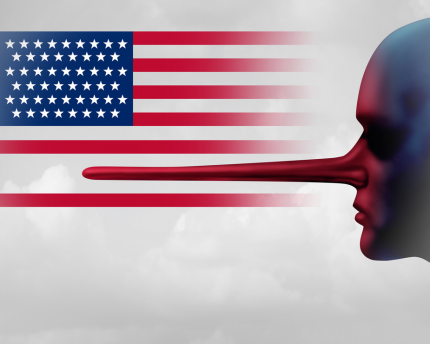What constitutes libel?

Furious about the book released this week by Washington Post veteran Bob Woodward, Fear, Trump in the White House (Simon & Schuster; 2018), Trump took to Twitter to complain that libel laws should be toughened.
"Isn’t it a shame that someone can write an article or book, totally make up stories and form a picture of a person that is literally the exact opposite of the fact, and get away with it without retribution or cost," he tweeted. "Don’t know why Washington politicians don’t change libel laws?"
Reporters, most of whom have taken courses or attended seminars on libel, may understand more about the subject than the president. There is no federal law on libel. There is state law, however. Here is the rundown, along with links and resources for further study.
Libel, a definition: Libel is a legal claim that false statements of fact about a person have been “printed, broadcast, spoken or otherwise communicated to others,” according to the Media Law Resource Center.
What is the difference between libel and slander? Libel is the written word; slander is the spoken word.
What is defamation: As defined by Merriam Webster.com, defamation is ”the act of communicating false statements about a person that injure the reputation of that person.” The key here is that the statement must be false.
Are libel laws different from state to state? Yes, but U.S. Supreme Court decisions govern these laws. One example is a famous 1964 case, Sullivan v. The New York Times.
The case revolved around an ad that was placed in the Times by civil rights leaders and notables of the time, including Sammy Davis Jr., Eleanor Roosevelt, Eartha Kitt and Sidney Poitier. The ad described aggressive police action against peaceful demonstrators. At one point, it made a false assertion regarding the actions against protesters: “When the entire student body protested to state authorities by refusing to re-register, their dining hall was padlocked in an attempt to starve them into submission.”
Lester B. Sullivan, commissioner of public affairs in Montgomery, Alabama, thought the ad had libeled him. There was a problem, however. The ad never mentioned him by name.
“Alabama law required a written request for retraction before a public official could ask for punitive damages in a libel lawsuit,” according to the Encyclopedia of Alabama online. “Sullivan asked the New York Times to publicly disclaim the contents of the advertisement. The newspaper declined because it did not see how the advertisement referred directly to Sullivan.”
Sullivan sued the newspaper and four civil rights leaders who signed the advertisement, the encyclopedia recounts. During the trial in Montgomery's circuit court, several residents testified that they thought the statements referred to Sullivan. He was awarded $500,000.
The New York Times appealed the case, first to the Alabama Supreme Court, which sided with Sullivan, and then to the U.S. Supreme Court.
The paper won the final appeal, as the court found that the First Amendment "protects newspapers even when they print false statements, so long as the newspapers did not act with ‘actual malice,’” recounts the Bill of Rights Institute.
What are the defenses against libel? The Sullivan case provided one defense: No actual malice occurred.
Truth is the best defense against claims of defamation and libel. If you write that a politician’s mother wears army boots, and the woman wears army boots, there’s no case.
Statements of opinion "generally cannot support a cause of action for defamation, even if they are outrageous or widely off the mark," according to the Digital Media Law Project online. It is also possible that the plaintiff waited too long to file his lawsuit and the claim is barred by the statute of limitations.
Related:
How presidents respond to hatred
Like us on Facebook and tell us what you think.

